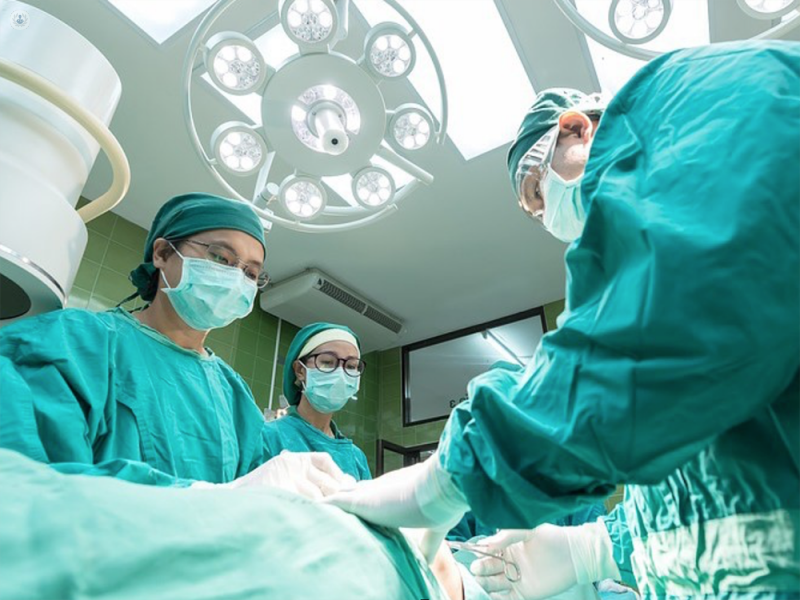Is robotic-assisted knee replacement better than conventional surgery?
Escrito por:Robotic-assisted knee replacements are definitely an advancement over previous technologies. They allow for more accuracy and allow the position of implants to be modified based on a patient’s anatomy. Robotic-assisted technology can be used for both partial and full knee replacements.
Mr Mark Dunbar dives deeper into robotic-assisted technology and how it can improve surgical outcomes.

Most mainstream companies understand the benefit of robotic surgery, so more systems have been developed in recent years. The most commonly adopted robotic system is the Mako system which is the technology used by Mr Dunbar. Although there are varies robotic systems, they only have slight differences and all attempt to do the same thing, accounting for individual variation and giving consistent knee replacement results.
How long does a robotic knee replacement take?
A robotic-assisted knee replacement can be expected to last as long as or longer than a conventionally placed knee replacement. The exact same implant is used but the way the operation is carried out is very different. Interoperative planning takes longer with robotic-assisted surgery but the time taken to cut the bone is a lot shorter.
How does robotic-assisted technology help with planning the surgery?
Robotic technology helps by making a 3D model of a patient’s knee, this gives surgeons a better understanding of a patient’s real anatomy rather than looking at plain X-rays. Markers are placed on the bone outside of the operation field to allow the robot to understand where the knee is to map a virtual model of the knee.
A key advantage is that during surgery it’s possible to make small adjustments to the bone if necessary, which is different from conventional surgery. If the slope of the bone needs to be changed, it can be cut by half a degree, which is very different from what conventional surgical instruments can do.
Who’s a good candidate for robotic knee surgery?
Anyone is suited to robotic-assisted knee surgery, there are no specific counter-indications.
What are the limitations of robotic-assisted surgery?
For one, robots cannot perform the surgery but assist in the planning of the surgery and delivery of the operation. It will be a very long time before there is any potential for autonomy in this process and when there is, it won’t be good for Mr Dunbar’s profession!
Another thing is that the technology is too expensive. It’s also not widely available on the NHS and exists mostly in the private sector. It’s hoped that as more companies enter the market and there’s more research to show the efficacy of robotic-assisted technology, the technology will become more widely available.
Does insurance cover robotic-assisted knee replacements?
Insurance does cover robotic-assisted replacements. The implants used are exactly the same as those used in conventional surgery.
What’s the future of robotic-assisted replacement surgery?
Now knee replacements can be placed accurately and surgeons can understand the true position of a knee replacement, thanks to robotic-assisted surgery. Studies have shown that robotic-assisted surgery has led to a faster recovery and a potentially better and earlier return to function. Further research is ongoing and will lead to better outcomes overall.
Interested in learning more about robotic-assisted knee replacements? A consultation with Mr Dunbar can answer all your pressing questions.


